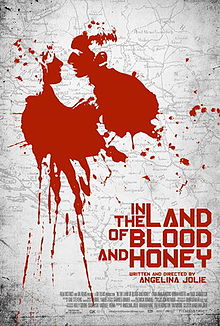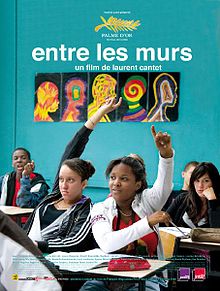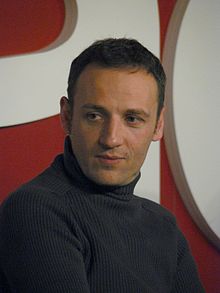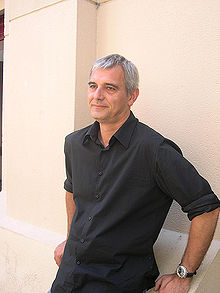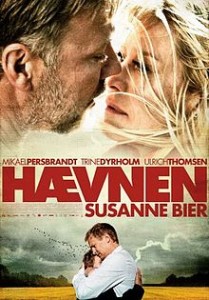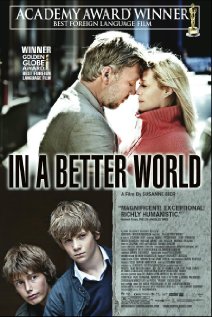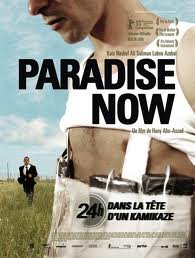 Paradise Now—a 2005 collaborative movie between France, Germany, the Netherlands, and Palestine—depicts Palestinian problems from the point of view of Palestinians, focusing on two young Palestinian suicide bombers. Director Hany Abu-Assad is a Palestinian who was born in Nazareth, Israel, and immigrated to the Netherlands when he was 19 years old.
Paradise Now—a 2005 collaborative movie between France, Germany, the Netherlands, and Palestine—depicts Palestinian problems from the point of view of Palestinians, focusing on two young Palestinian suicide bombers. Director Hany Abu-Assad is a Palestinian who was born in Nazareth, Israel, and immigrated to the Netherlands when he was 19 years old.
This movie takes the stance that young suicide bombers aren’t monsters at all and that they are ordinary young people. Said and Khaled, two young men given this mission, live without hope in the West Bank in Palestine and turn to terrorism, believing that they can get to paradise by participating in terrorist activity. Khaled is a loser who keeps getting fired from his jobs, and feels that the only way to become a hero is to die as a suicide bomber. His close friend Said is smart and popular with girls, but, since he has the past of his father being executed by fellow Palestinians as a “traitor” for being part of a pro-Israeli faction, he believes he must die as a hero in order to remove the dishonor on his family name.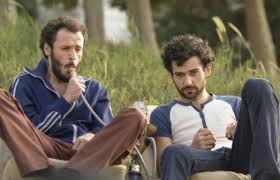
The Israeli-Palestinian conflict originated from the United Kingdom’s three-pronged diplomatic strategy that had the purpose of strengthening the UK both during and after World War I. The first prong was the Hussein-McMahon Correspondence in 1915 against the enemy Ottoman Empire; the United Kingdom promised the Arabs under Turkish control independence in exchange for armed uprising against the Ottoman Empire. The second prong was acquiring financial support for the war from the Rothschild’s, a wealthy Jewish merchant family; to do so, the United Kingdom issued a letter of support for the establishment of a Jewish nation in 1917 through their Foreign Secretary Balfour. The third prong was the Sykes-Picot Agreement; the United Kingdom covertly negotiated with their allies, France and Russia, regarding the division of the Middle East region after the Great War. In the end, the Arab and Jewish armies, together as part of the British army, fought the Ottoman Empire in World War I, and Palestine (containing current Jordan) became mandated territory of the United Kingdom.
After World War II, the United Kingdom chose to give up Palestine, a land rife with political instability, and entrust the intermediation of this problem to the United Nations. In the United Nations General Assembly on November 29, 1947, the UN Resolution 181 that proposed that Palestine be divided—56.5% given to a Jewish nation and 43.5% toward an Arab nation—and that Jerusalem be under international control was approved with 33 for it, 13 opposed, and 10 abstentions. However, in February 1948, the Arab League nation members voted in Cairo against the founding of an Israeli nation, and the antagonism between Jews and Arabs in this land became very serious. When the United Kingdom’s mandate over Palestine ended in May 1948, the Jews, based on the UN Resolution 181, declared their independence on May 14, and the nation of Israel was formed. Simultaneously, a large army consisting of five nations of the Arab League (Egypt, Trans-Jordon, Syria, Lebanon, Iraq) invaded Palestine with the goal to prevent their independence, and the First Arab-Israeli War began. The Arab side, which was expected to be victorious, failed to wield its full power due to internal disunity. Israel, after a hard-fought battle where 1% of their population died in action, came out victorious, and 700,000 to 800,000 Arabs who lived on Palestinian land became refugees. Continuing until today, many conflicts have happened on this land including several Arab-Israeli Wars.
In 1964, the Palestine Liberation Organization (PLO) was formed with the objective of liberating Palestine from Israel’s control. In 1993, based on the Oslo Accords between the PLO and Israel, the Palestine Authority was established. This is an autonomous government that is split into the West Bank between Jordan and Israel, and the Gaza Strip on the northeast side of the Sinai Peninsula of Egypt.
The setting of this movie is the West Bank on the Jordan River. The future of this area is unpredictable, but currently, there are three districts in the West Bank: one district where the Palestine Authority has administrative power as well as control over the police, one where the Palestine Authority has administrative power while the Israeli army controls the police, and one where the Israeli army has administrative power as well as power over the police. Particularly in the third area, everyday life for Palestinians is highly restricted, with everything including home or school construction, well digging, and road building needing permission from the Israeli army. In all three areas, it is possible for Israel to prohibit transit for Palestinians.
It is clear that director Hany Abu-Assad, as a Palestinian, is addressing the situation Palestinians are in, but this movie is not political propaganda. His way of filming this movie is very cautious and he includes humorous scenes; his goal seems to be for the audience to know the true face of the West Bank territory. His philosophy is perhaps most like that of Suha, the fleeting love interest of the protagonist Said. She is the daughter of a hero of the independence movement, was born in Paris, raised in Morocco, and returned to the West Bank. She opposes violent conflict, and she tries to persuade Said to abandon revenge and implement peace in the Palestinian district by means of a nonviolent human rights movement, but this sentiment fails to reach Said.
At the beginning of the movie, there is a scene depicting a young Israeli soldier menacingly checking Suha’s luggage at a checkpoint on her way back to the West Bank. However, at the end of the movie, there are young Israeli soldiers, much like the one in the first scene, on the bus that Said is riding in order to suicide bomb, but the soldiers on the bus are young men with beautiful smiles and look very kind. They are really beautiful young men. However, these young men are to die soon with Said. This movie is not propaganda saying which side is right or wrong, and I feel the director’s wish for the audience to know the true face of Palestine as best as possible without prejudice.

